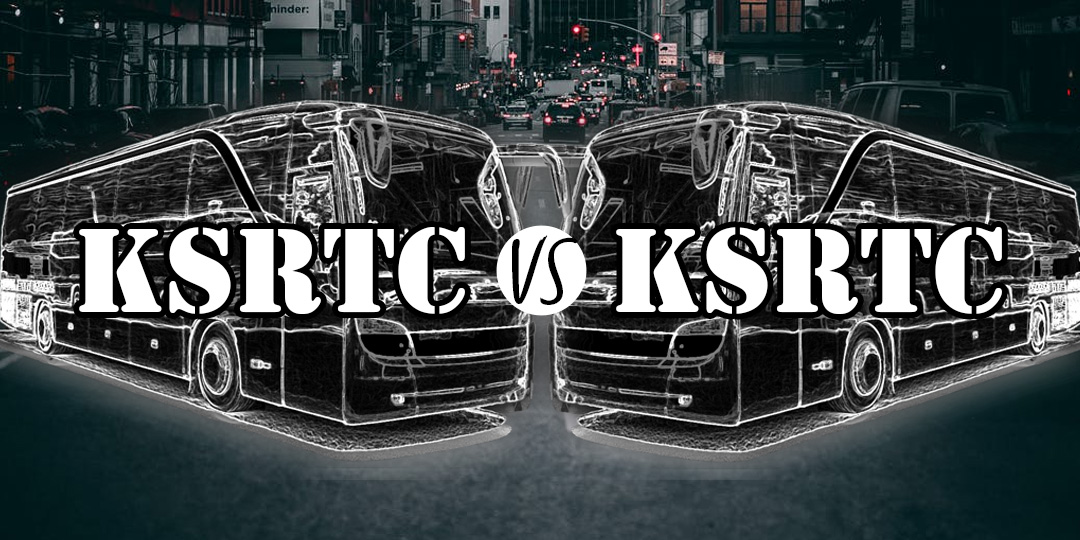Kerala vs Karnataka – Battle For An Abbreviation

By Sajay Shrivaths, Advocate, IP Practice
Background
For a long time, these two states have been using the KSRTC logo for their respective national trucking companies. The dispute arose when Karnataka applied for trademark registration and issued a notice to Kerala in 2014 stating that they should not use the acronym. Subsequently, Kerala contacted the Trademark Registry and applied for trademark rights because it was a previous user of the trademark. After a public search for the trademark in the Trademark Register, it appears that the trademark has been registered by both states, Karnataka around 2017 and Kerala around 2019. None of the registrations of these trademarks seem to have been cancelled. Similarly, a petition for rectification against Karnataka’s use of KSRTC appears to be currently under review. This means that both states can currently use the trademark, and the other cannot file a claim for infringement. Interestingly, even before the registration, the Kerala RTC has already invoked its trademark rights to KSRTC to suppress criticism of it.
Trademark Registrability
An interesting question in this discussion is to first look at whether the trademark can be registered by any state. This is because in the case of these two states, the trademark is just an abbreviation of their company name, which in turn is a description of their services.
Just like the Delhi High Court in Superon Schweisstechnik India Ltd. v. Modi Hitech India Ltd., even descriptive word acronyms are not entitled to initial protection. This was also reiterated in S.B.L Ltd. v. Himalaya Drug Co., in which the court quoted McCarthy’s opinion that “[a]n abbreviation of the generic name still conveys to the buyer the original generic meaning of the shortened name and is still “generic”. “This claim will mean KSRTC, is just an abbreviation of the descriptive brand names of the two companies and should not be registrable. However, if a trademark has a secondary meaning in a particular type of use, the situation will change. In this case, it can be said that the trademark has acquired a secondary meaning for companies and individuals in both states to identify their respective state bus services as KSRTC. Therefore, it can be said that the trademark may be registered by any state from the beginning.
Concurrent Use
Given that the trademark can be registered in two states, the question that arises is whether it can be used in both states at the same time. In this case, the managing director of Karnataka RTC also emphasized Section 12 of the Trademark Act of 1999. This clause allows registrars to register the same trademark to different owners to provide the same or similar services in the case of “honest concurrent use or other special circumstances”. Applying this proposition to the current scenario, if it can be said that the subsequent users of Karnataka are honest concurrent users or show special circumstances, they can obtain trademark registration together with Kerala.
Honest Concurrent Use
While using the Bombay High Court in Kores (India) Limited v. Khoday Eshwarsa and Son is in the context of the equivalent substance clause of the old trademark law.
These factors are as follows: “(1) the honesty of concurrent use, (2) the number of concurrent uses shown by the applicant taking into account the duration, area and quantity, as well as trade and related goods, (3) the applicant’s trademark and the Opponent’s mark and the degree of confusion that the similarity of the trademark may cause. (4) If there is indeed confusion and (5) If the applicant’s trademark is registered, the relative inconvenience to the parties and the degree of inconvenience to the public will be caused.
In this case, Karnataka’s use of the trademark can be said to be honest because it is an abbreviation of their name, which in turn conforms to the common way of naming trucking companies in various states, such as RSRTC or UPSRTC. The KSRTC trademark has also been used by the two states for decades, including buses from two states that pass through each other. There is no case of confusion caused by the concurrent use of the mark, and both parties and the public will not face special inconvenience. On the contrary, if concurrent use is not allowed, the public will face greater inconvenience because they are familiar with the brand’s connection with Karnataka SRTC buses. The possible confusion caused by concurrent use can be seen in the context of the Supreme Court’s Cadila Healthcare regarding the possibility of confusion. In this case, the two trademarks have the same nature, are identical, and are used for services of the same nature. The categories of buyers for these two services are diverse, covering a wide range of education levels and the level of care taken. However, when it comes to other factors, there are still considerable differences. Karnataka SRTC can be said to perform better than Kerala. Buying tickets for the services of the two companies will also reduce confusion. While the full company name will be mentioned on the website during online purchases, for offline purchases, due to the focus of each state, the coverage of the same route by the two services is very limited. This is also related to the final element of the surrounding environment. Due to the limited overlap of services, the possibility of confusion is low. In addition, the buses of the two companies have their own logos on the license plates, eliminating any fear of confusion. Therefore, the degree of confusion is low and satisfies all factors for honest concurrent use.
Other special circumstances
If the honest and concurrent use exception is found to be unenforceable, the registrar can still choose to allow the registration by citing the “other special circumstances” item. Although this is an indefinite discretion granted to the Registrar, in the case of London Rubber Co. Ltd. v. Durex Products, the Supreme Court has taken the trademark as the company name and the long-term use as relevant factors, and other factors. Also on the real-time stage, KSRTC is just an abbreviation of the company name, which has been used for decades. This, coupled with the unlikely confusion and public concern issues, provides a strong justification for ensuring concurrent trademark registration.
This may be an ideal situation for concurrent use. The essence of trademark law is to grant limited monopoly rights to trademarks. In the case of government entities that provide standard transportation services, the possibility of confusion is very small. A state’s trademark monopoly on the KSRTC logo will seriously unbalance the delicate cost-benefit balance caused by the brand. The concurrent use exception is to compensate for this market failure, if concurrent use is not allowed here it would be pretty absurd.
Infringement
If it is not concurrently registered under Section 12, it must be determined whether the use of the KSRTC mark in Karnataka constitutes an infringement. As long as there is no risk of confusion and the services are similar, the only applicable clause is Section 29(5) of the Act, which prohibits the use of registered trademarks as trade names for “registered trademark services”. “The use of the KSRTC brand in Karnataka satisfies these elements. However, Section 30(2)(a) of the Act stipulates that, when used, inter alia, it indicates the type of service involved and the intended purpose regarding the geographical origin, the registered trademark does not constitute infringement. This descriptive fair use defense can also be applied to the current scenario, because Karnataka’s use of the trademark can be said to describe the intended purpose of the service it provides. In this case, it can be concluded that even if Kerala has registered a trademark, Karnataka’s use of the KSRTC trademark also does not constitute infringement.
Conclusion
It is worth noting that although the above arguments are made from the perspective of Karnataka’s defense of any claims of infringement, if not, and Kerala is an additional reason for the above user, they are equally applicable to Karnataka. That being said, there seems to be good reason to allow Kerala and Karnataka to use the KSRTC brand. The dispute between the two states on this issue seems surprising, and the alleged benefits of one state by restricting the use of the KSRTC trademark in the other state seem unclear. Laxman Savadi, Karnataka’s Senior Deputy Minister and Minister of Transport, also emphasized this point. He called it an unnecessary controversy and said: “Serving the people is good for both companies. They are all important. Karnataka or Kerala are working” for the benefit and service of the public without resorting to profit or competition. Therefore, no state should consider this matter as a matter of prestige.



